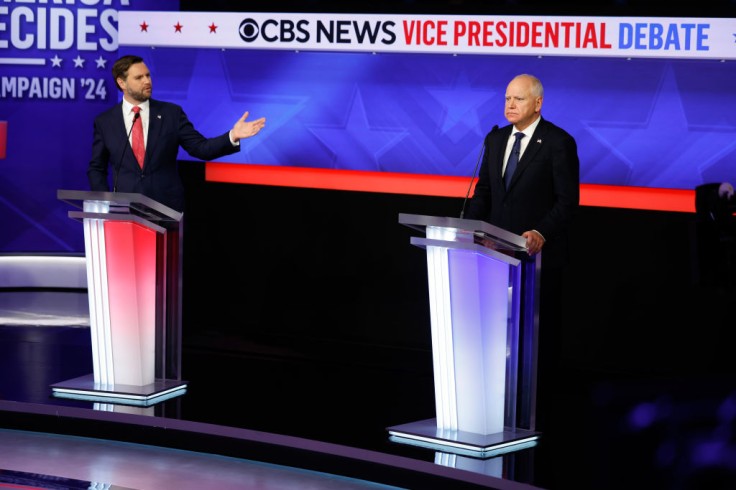
Childcare has become one of the key issues in the lead-up to the November election, with both sides offering starkly different solutions to resolve the shortages of affordable child care in the United States.
There are three key issues related to childcare: child tax credit, paid family leave, and the rising cost of child care. Vice presidential candidates Tim Walz, Kamala Harris' running mate, and JD Vance, Donald Trump's running mate, have publicly spoken about their plans to resolve the crisis.
Here's where the candidates stand on key childcare issues.
On Child Tax Credit
Both sides have said they support permanently expanding the child tax credit, which currently offers families up to $2,000 per child. However, the increase varies between the two sides.
A central part of Harris and Walz's campaign is a proposal that would expand the child tax credit to $6,000 for newborns and $3,000 for all children. As the governor of Minnesota, Walz passed a statewide tax credit offering families as much as $1,750 per child. That is the largest state-level child tax credit in the US.
Meanwhile, Vance mentioned he would "love to see" a federal child tax credit to be expanded to $5,000 per child from the current $2,000. He also said that tax credits would be available to all families, regardless of their income.
On Paid Family Leave
Trump and Vance have kept mum about paid family leave, despite it being a notable part of the former president's campaign in 2016. Under the Trump administration, federal workers received 12 weeks of paid family leave.
Walz, on the other hand, said he and Harris will work on paid family and medical leave should they win in November. He has not mentioned how long the leave should be. However, he has signed a bill that would allow for up to 20 weeks of paid family and medical leave in Minnesota, which employees can use to care for a family member or a new child. That bill is set to take effect on Jan. 1, 2026.
On Childcare Costs
Vance, specifically, acknowledged the rising cost of childcare but suggested that families should explore other options to manage their spending, including requesting support from extended family. This, in turn, would help relieve pressure on resources spent on daycare, he noted.
Walz emphasized the need for a more comprehensive approach to childcare, including resolving the issues of supply and demand.
"You can't expect the most important people in our lives to take in our children," Walz added, seemingly referencing Vance's comments.
RELATED ARTICLE: America's Child Care Crisis: Here's How Harris and Trump Would Resolve Surging Costs